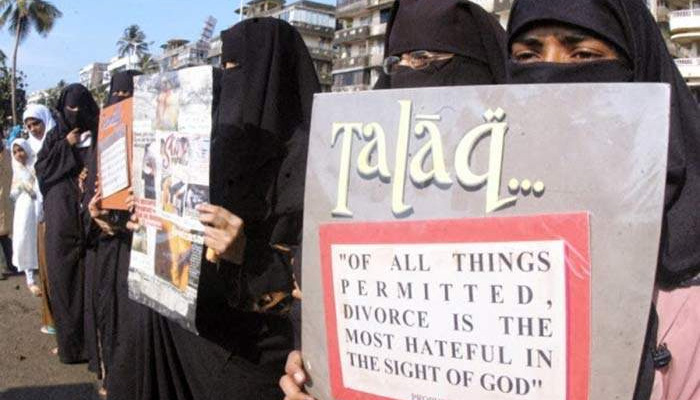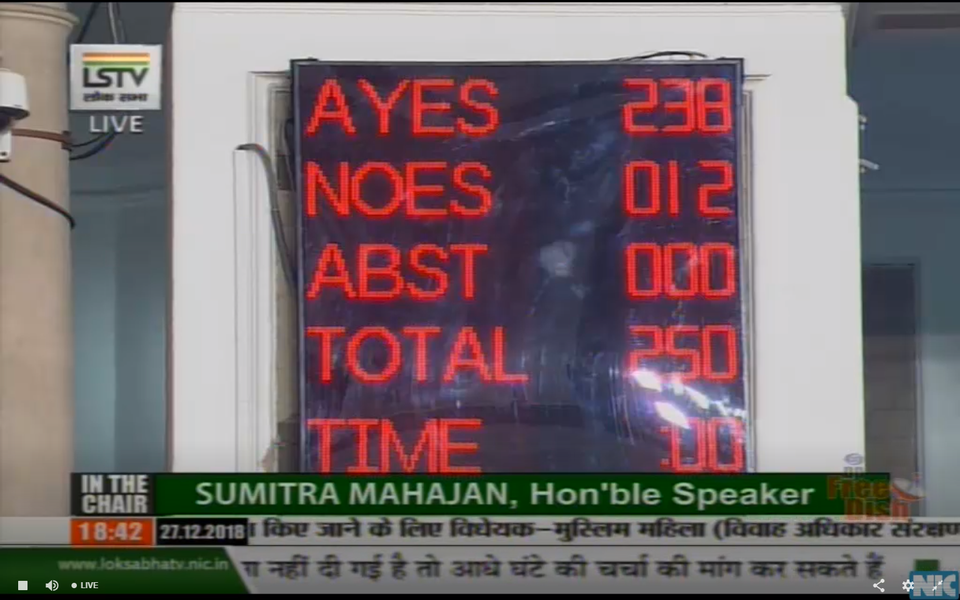
Before staging a walkout, the opposition demanded that a joint selection committee must be constituted to look into the bill.
The Muslim Women Bill 2018, which criminalises triple talaq, was on Thursday passed in the Lok Sabha. The bill was passed despite opposition parties, including the Congress, the AIADMK and the Samajwadi Party, staging a walkout before the voting on the bill began.
Before the walkout by the opposition parties, senior Congress leader Mallikarjun Kharge demanded that a joint selection committee must be constituted before the bill is passed. Citing that the issue is constitutional in nature, the Congress leader said, “A joint selection committee must be constituted and report must be submitted within 15 days.”
The bill was opposed in the Lok Sabha by members of several opposition parties. Speaking about the bill, All India Majlis-e-Ittehad-ul Muslimeen chief Asaduddin Owaisi said that the Bharatiya Janata Party (BJP)-led NDA government did not oppose the decriminalisation of homosexuality and adultery, but was criminalising triple talaq.

Targeting the government, Owaisi further said, “You talk about faith when a judgement comes on Sabarimala, but you don’t want to accept that it’s a matter of my faith when it comes to triple talaq.”
Union Law Minister Ravi Shankar Prasad replied to the debate on behalf of the government, asserting that the bill was not aimed at targeting any particular community or religion. He accused the Congress and other opposition parties of opposition the bill with the intention of protecting their votebanks.
On the opposition over the provision of the husband being jailed in case of triple talaq, the Law Minister said, “Everyone is speaking about the husband being jailed and questioning as to how the victim would get compensation in such case. But I want to ask the House, the husband is jailed even under anti-dowry act. But when that bill was passed, no one raised this question.”
Just before the bill was to be passed by a voice vote, the opposition sought a division and the bill was passed by 245 votes in favour and 11 against it. Several amendments moved by opposition were negated by a division that was insisted by opposition members.



